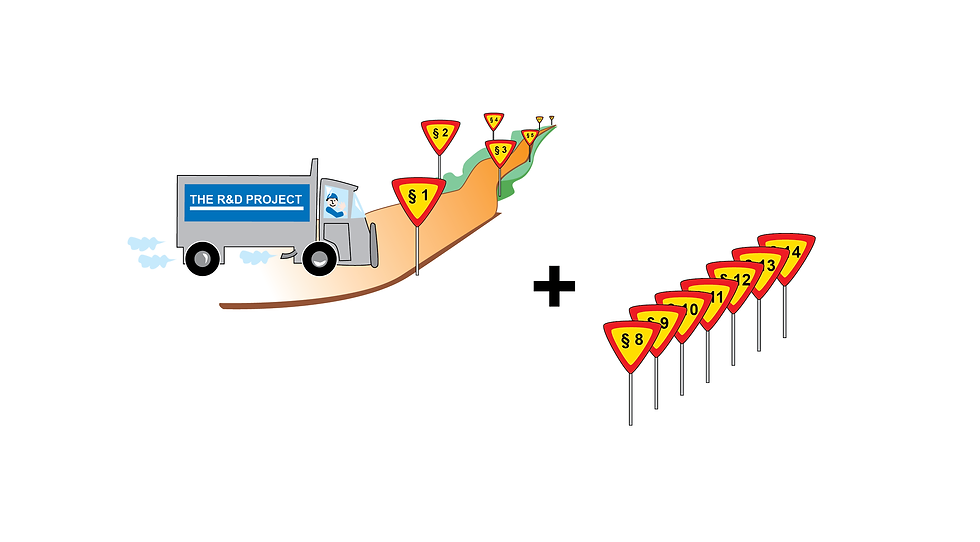Why asking why sometimes is the wrong question!
- Per Lindstedt

- Feb 13, 2020
- 4 min read
Updated: Jun 13, 2024
Toyota has made the five why technique known. It is a technique to get to the root cause of a technical problem by asking why repeatedly:
1. Why did the paint get fish-eyes?
2. Why was skin oil under the paint?
3. Why did the painter not use latex gloves?
4. Why were we out of latex gloves?
5. Why did we change the supplier of latex gloves?
The method works fine in an engineering or technical situation. However, it needs to be a clear cause-and-effect relationship between the problem you are trying to solve and a possible solution or counteraction for the method to work – the why questions help you dig deeper into the issue. Thus, giving you a better understanding of the problem and its context. Closed conversations tools, like the five why technique, are powerful tools in a technical context.

If you’re conducting an in-depth interview with a customer to understand customer needs and resource concerns, the why questions should, many times, instead be avoided. Questions like:
Why do you want stainless steel?
Why are long service intervals necessary?
There are two main concerns with this type of questioning.
First is the problem that you ask for a definitive and logical answer, but the real reason behind may be emotional, lacking a valid logical reason. Maybe the customer is reluctant to share the real cause and feels forced to come up with a legitimate story. Not only will you completely misunderstand the real customer need, but the customer also feels pressed and uncomfortable. The customer will feel pinned down because the question is convergent looking for the logical answer when, in fact, it doesn’t exist.
Secondly, why-questions may be perceived as having a negative and accusatory undertone. The connotation is the feeling different words evoke. In an in-depth interview, we want to use questions with a positive connotation. We want the customer to feel that we are genuinely interested, curious, and there to listen and learn. The why-question may create negative connotation and the customer thinks that we are just nosy or judgmental. Whatever rapport you have been able to build with the customer may, therefore, be destroyed.
However, knowledge that is new to both the company and the customer will surface if the in-depth interview is conducted using the right questions and interview techniques. The interview will travel down avenues of thoughts never explored by the customer before.
The gold-digger knows that most are gravel but hidden in all the gravel are a few gold nuggets worth the effort. An in-depth interview is the same. Most of what you hear is already know, but rightly executed, it will also provide many nuggets of breakthrough insights previously unknown to your company.
So instead of asking:
Why do you want stainless steel?
Ask:
In what way will stainless steel provide value for you?
How would that affect you if we started using stainless steel?
Contemplate the different ways to frame the question using why, what, or how. If you speak them out loud, I am sure you will notice the difference. It is subtle, but there is a difference in connotation, and that small difference will have an impact on the quality of the answer and also how you build trust and rapport during the interview.

By now, you may think professionals can only perform in-depth interviews. However, we believe it is a misconception that it is best to use an outside interviewer, knowing all the tricks of the trade and without paradigms. Because, without solid knowledge about the product, its use, and the customer's business, the interview will only travel in shallow waters.
Only an experienced person will find meaningful patterns of information or deviations from normal practice. A novice without this platform of knowledge is incapable of that. Only the experienced person knows how to navigate in uncharted waters. The expert's experience will affect what he or she will observe and understand. How they will organize and interpret the information presented by the customer and evaluate if it is gravel or gold nuggets. Decide if it is worth digging deeper into or move the in-depth interview over to a different topic.
That is why we never offer our customers to perform theses in-depth interviews for them. The in-depth interviews must be conducted by your own people and preferably by a combo consisting of one technical person with profound product knowledge and one person from marketing or sales.
The technical person should take the lead and be the researcher facilitating the in-depth interview and the salesperson should take on a social role and only do the introduction and closure of the visit. It is not fair to ask salespeople to be the researcher as they risk losing credibility by asking probing questions such as:
I am not sure I understand this?
This is new information for me, please elaborate…
Can you please explain this in a simpler way?
Remember that salespeople also have a history and relationship with the customer, and this risk influencing the result of the in-depth interview negatively.
In our experience, given the proper training and feed-back on the first couple of in-depth interviews, people quickly pick up speed and can provide a substantial amount of gold nuggets – the type of breakthrough customer insights only a well-conducted “Voice of the customer” can provide.
If you want to learn more on customer value, follow "The customer value challenge". Several videos and posters on how to turn customer value into a concrete and practical tool to drive profitability, growth and sustainability. All is free.






Comments